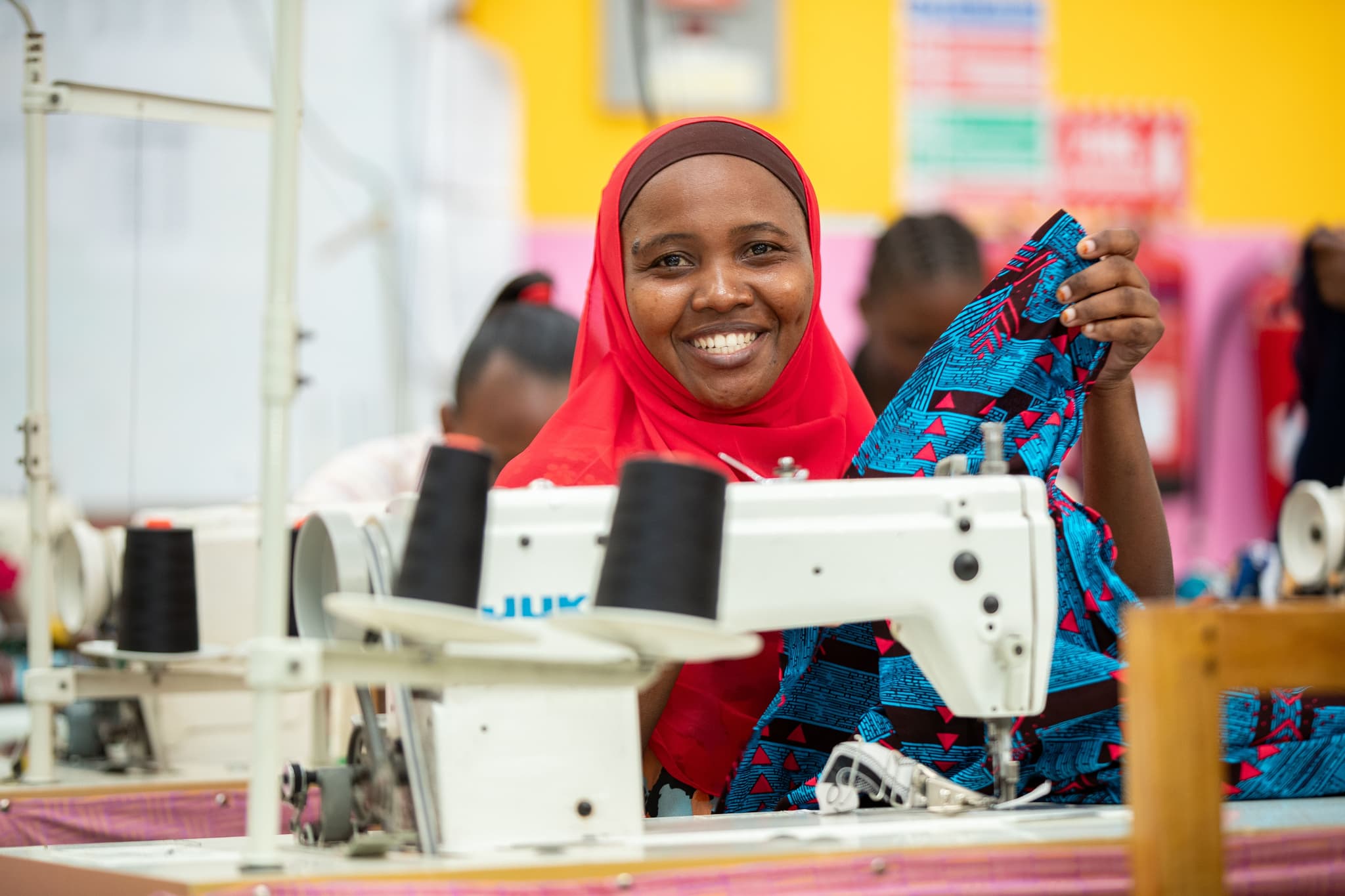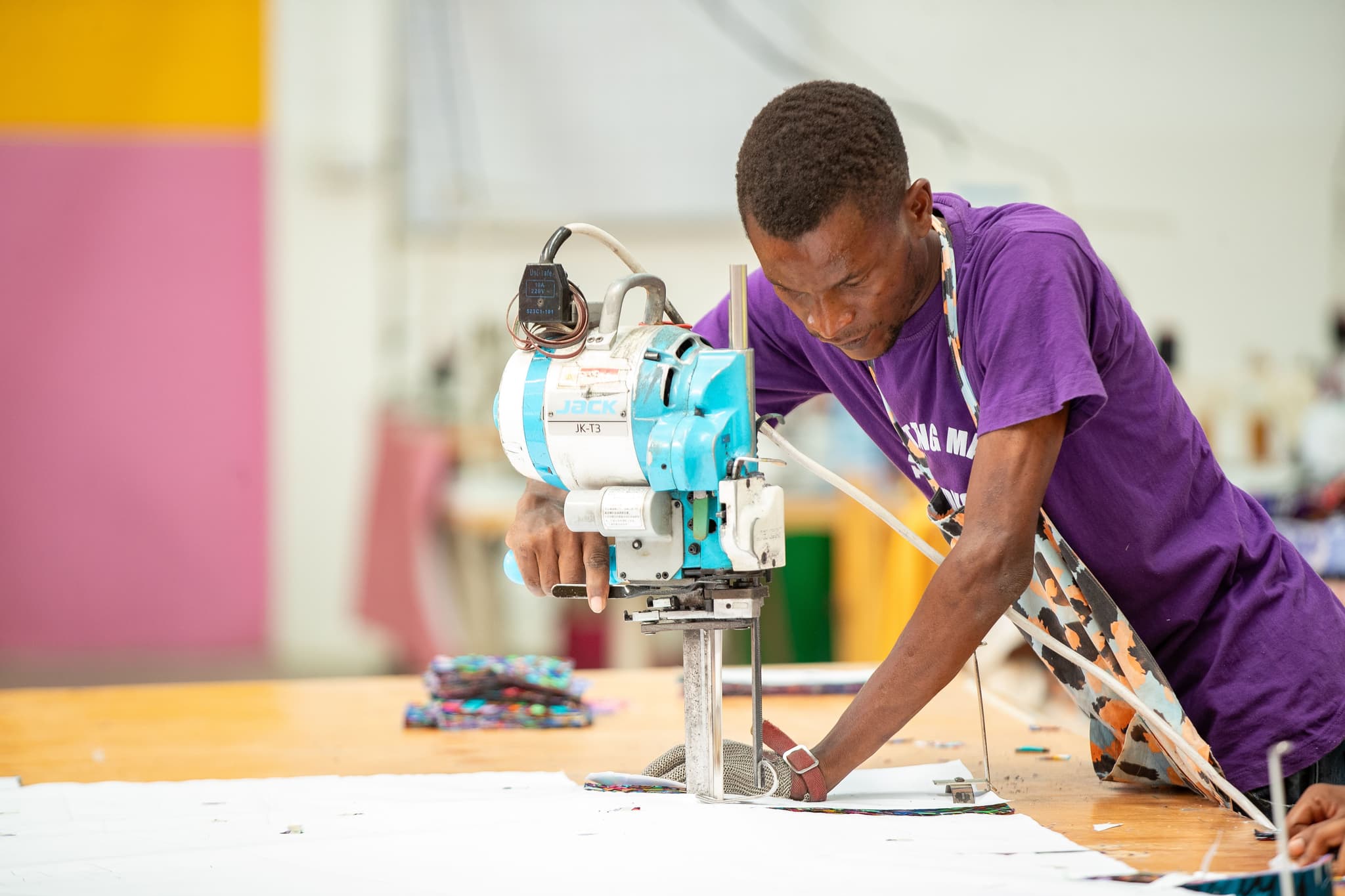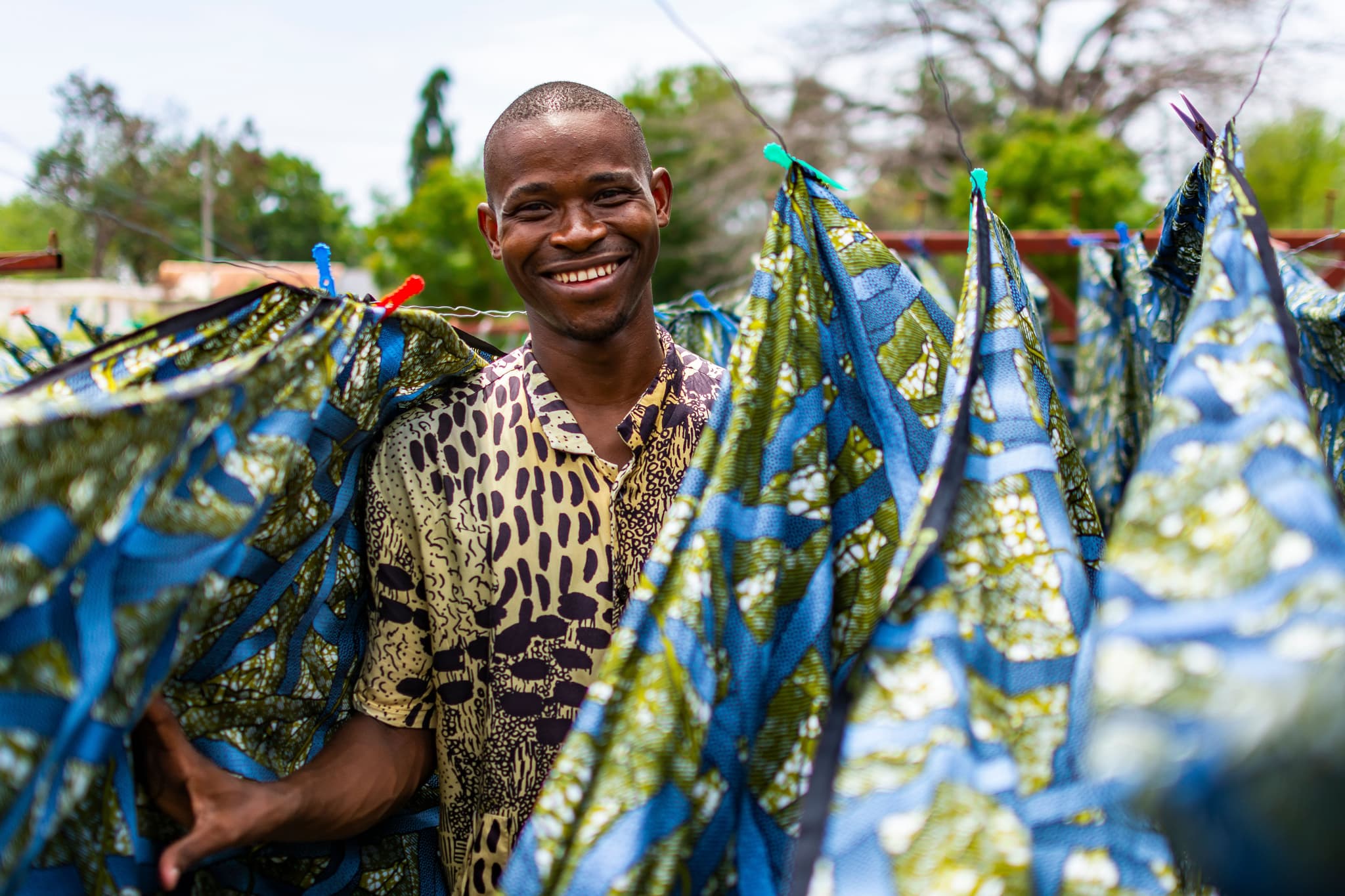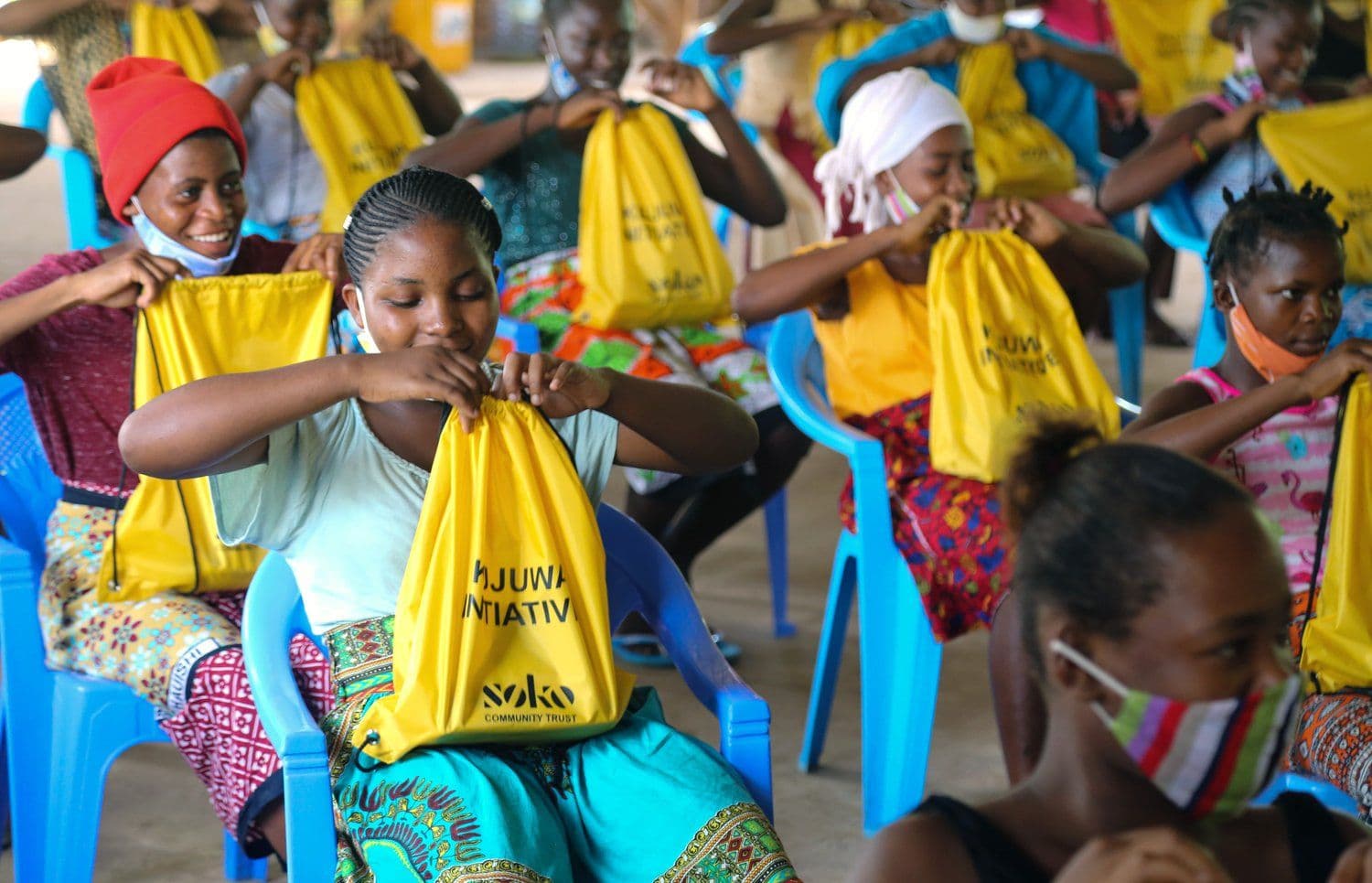How does SOKO Kenya integrate sustainable practices into every stage of the garment production process from sourcing to finishing?
We are continuously innovating to reduce our products’ and operations’ environmental and climate impact. Currently, 75% of our factory’s power requirements are generated from on-site solar panels and having installed rainwater tanks, our water used for drinking, steaming and cleaning is entirely self-sufficient.
We manage waste generated from our business operations according to the principles of reduction, reuse, and recycling, and take steps towards circularity by donating our fabric waste to our social enterprise Kujuwa Initiative - for the manufacture of washable sanitary pads, SOKO Community Trust - for its training initiatives such as the Stitching Academy and other local community projects, which directly supports the local economy.
We did not build a factory where we ticked the ‘good working conditions’ boxes and then sat back because we’d ‘done our bit’. We are ever-listening, ever-learning, ever-adapting and improving efficiency.

How has SOKO Kenya’s approach to ethical manufacturing influenced the quality of life for your employees and the local community?
Sustainability is at the core of what we do. We're committed to managing our resources responsibly, whether it's reducing fabric waste or conserving water and power.
We invest in our employees' growth. Unlike many conventional factories, we provide our team with ongoing skills development and career progression opportunities including a promotion scale. We want them to thrive, not just survive, as our business expands. From providing free lunches to supporting single mothers and offering childcare services and healthcare, we're all about supporting the health and well-being of our employees. A healthy workforce is a happy and productive one.
And last but not least, we pay our employees a living wage, a private pension and equip them with the financial knowledge they need to manage their money effectively. Using the GLWC’s ’Anker Methodology’, we spent a number of months calculating what the living wage is for our team based on the cost of food, housing, health care, education and family size and provision for unexpected events.
Our charitable efforts include the Kujuwa Initiative, tackling period poverty with washable sanitary pads made from factory waste, and providing menstrual hygiene education in schools.
We also run the SOKO Community Trust, empowering individuals through programs like the Stitching Academy and SOKO Skills, leading to permanent employment for 427 graduates and counting.

How do you measure the impact of your training and development programs, like the Stitching Academy, on local employment rates and skills enhancement?
The program begins with collecting background data from new students, including employment status and motivations.
After graduation, we follow up to check job placement and income improvement. Around 80% of graduates find jobs in export and processing zones. Regular assessments track students' progress in garment-making skills, and feedback from students helps us to evaluate the program's effectiveness and impact.

What specific benefits have the Kujuwa Initiative to end period stigma and normalise menstruation in Kenya brought to the local community?
The Kujuwa Initiative has been a game-changer in our community in many ways. First off, we've seen a noticeable improvement in health awareness and practices. We've been providing Sexual Reproductive Health training in schools, hosting teen forums, and getting parents involved. It has helped promote better menstrual hygiene practices among women and girls, which is crucial for reducing health risks like reproductive tract infections.
Improving access to menstrual hygiene products has been a big focus for us too. We have made sure that women and girls have access to affordable and sustainable options, like washable sanitary pads made from up-cycled fabric waste. We have donated over 20,000 washable pads so far. The goal is to ensure girls have safe tools to manage their periods, which ultimately contributes to their overall health and well-being.
We're also addressing educational barriers. Period stigma and lack of access to hygiene products can keep girls out of school. By providing these resources, we hope to help them attend regularly, which sets them up for success in their education and future opportunities.
By sparking open discussions in schools and the community about menstruation and breaking down gender stereotypes, we strive to build a more inclusive society. We're passionate about creating a space where everyone has equal opportunities, and it has been incredibly rewarding to see the impact we've made so far.

Looking ahead, what new initiatives or projects is SOKO Kenya planning to further enhance its sustainability practices and community impact?
We are seeking funding and partnerships with organisations like USAID. They aim to boost trade and investment in Africa, offering grants and support to firms, particularly to enhance women's employment and career growth. With such partnerships, we hope to expand globally, attract investors, and create more jobs in the community.







